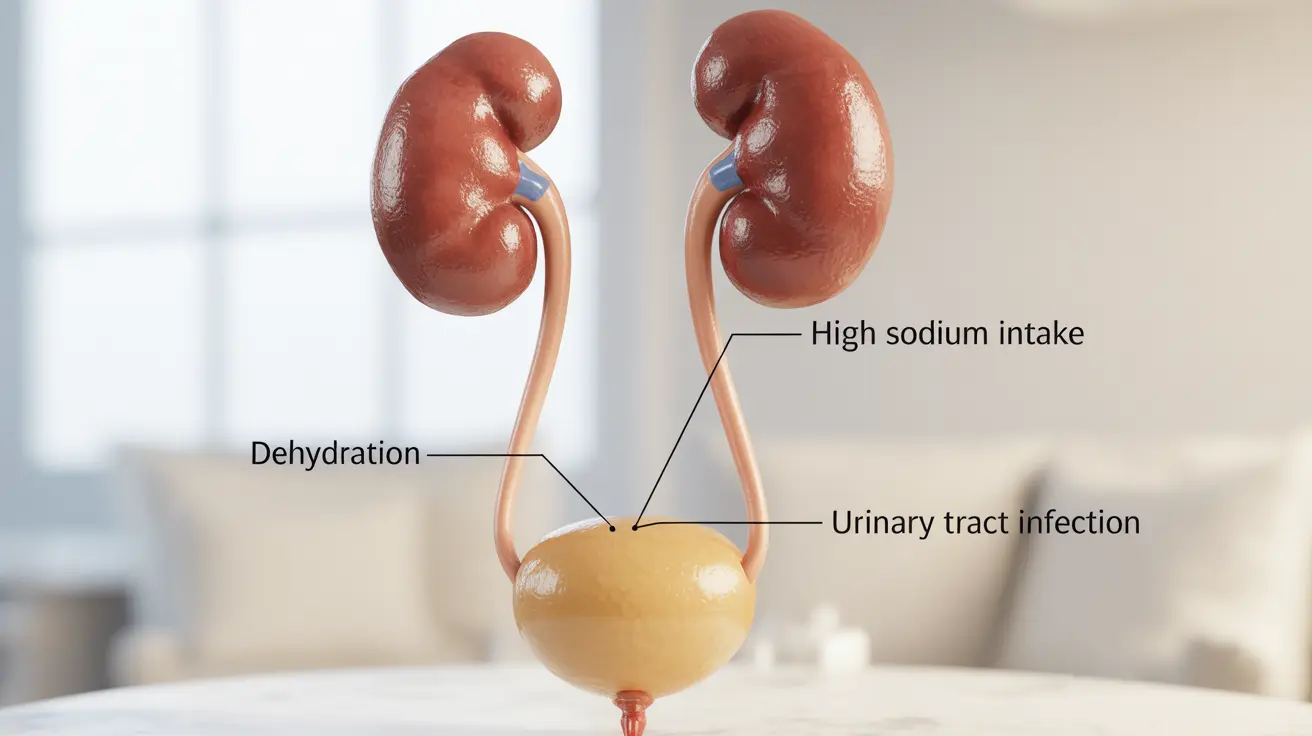Urinary tract infections (UTIs) can be frustrating, especially when symptoms seem to fluctuate or return unexpectedly. Understanding why UTI symptoms come and go is crucial for proper treatment and prevention of recurring infections. This comprehensive guide will help you understand the patterns of UTI symptoms and when to seek medical attention.
The Nature of Fluctuating UTI Symptoms
UTI symptoms that come and go can be particularly confusing and concerning for many people. This pattern might occur due to various factors, including the body's immune response, incomplete treatment, or the presence of resistant bacteria. Understanding these patterns is essential for proper diagnosis and treatment.
Common Causes of Intermittent UTI Symptoms
Several factors can contribute to UTI symptoms that appear to come and go:
Bacterial Resistance
Some bacteria may become resistant to antibiotics, leading to persistent or recurring symptoms even during treatment. This resistance can cause symptoms to temporarily improve before returning.
Incomplete Treatment
Not finishing prescribed antibiotics or taking them incorrectly can allow some bacteria to survive, resulting in symptoms that seem to resolve but later return.
Underlying Health Conditions
Certain medical conditions, such as diabetes or immune system disorders, can affect how your body responds to infection and treatment, potentially causing fluctuating symptoms.
Identifying New vs. Lingering Infections
It's important to distinguish between a new infection and one that hasn't fully cleared. Key indicators include:
- The timing of symptom recurrence
- The intensity and nature of symptoms
- The effectiveness of previous treatments
- Any lifestyle changes or risk factors
Managing UTI Symptoms
Immediate Steps
While waiting for medical treatment, several measures can help manage symptoms:
- Staying well-hydrated
- Urinating frequently and completely
- Using a heating pad for discomfort
- Avoiding irritants like caffeine and alcohol
Prevention Strategies
To reduce the risk of recurring UTIs:
- Practice proper hygiene
- Urinate after sexual activity
- Wear breathable cotton underwear
- Stay well-hydrated throughout the day
When to Seek Medical Care
It's essential to consult a healthcare provider if you experience:
- Persistent symptoms lasting more than a few days
- Symptoms that return after treatment
- Fever or severe pain
- Blood in the urine
Frequently Asked Questions
Can UTI symptoms come and go even if I'm being treated?
Yes, UTI symptoms can fluctuate during treatment due to factors such as bacterial resistance, incomplete treatment, or the body's varying immune response. If symptoms persist or return during treatment, consult your healthcare provider.
What are the most common causes of UTI symptoms that seem to disappear and reappear?
Common causes include incomplete antibiotic treatment, resistant bacteria, underlying health conditions, and poor hygiene practices. Stress and dehydration can also influence symptom patterns.
How can I tell if my UTI symptoms are a sign of a new infection or a lingering one?
Consider the timing, intensity, and nature of symptoms. A new infection typically starts with mild symptoms that progressively worsen, while a lingering infection may show inconsistent symptoms or quick return after treatment.
What are some natural remedies that can help alleviate UTI symptoms while I'm waiting for medical treatment?
Drinking plenty of water, taking over-the-counter pain relievers, using a heating pad, and consuming unsweetened cranberry products may help. However, these should not replace proper medical treatment.
How often should I see a doctor if I experience recurring UTI symptoms over time?
Consult a healthcare provider whenever symptoms persist for more than a few days or return after treatment. If you experience three or more UTIs in a year, schedule a comprehensive evaluation to identify underlying causes.




